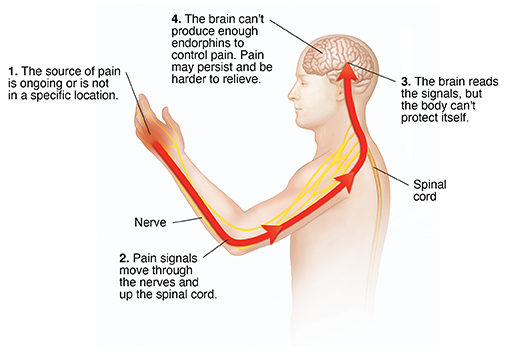Chronic means ongoing. Pain is called chronic when it lasts over a long period of time—at least 3 months. This includes pain that you feel regularly, even if it comes and goes. Chronic pain may be due to continuing injury or disease. Or it may be due to problems with the body’s pain-control system. An example of this is fibromyalgia.
Chronic stimulus
Chronic pain may be from ongoing arousal of the body's pain system. The cause may be an untreated injury or health problem. Common examples of these are:
-
Joint degeneration (arthritis).
-
Back injury.
-
Nervous system damage (neuropathic pain).
-
Headaches.
With this type of pain, both the pain and the condition that is causing it must be treated.
Chronic pain syndrome
In some cases, no cause can be found for a person's chronic pain. Some people with chronic pain develop chronic pain syndrome. In addition to the pain, this can include:
-
Anxiety.
-
Depression.
-
Anger.
-
Changed lifestyle.
It's important to talk with your health care team about these. You will need treatment for these problems in addition to treatment for pain.
Featured in


